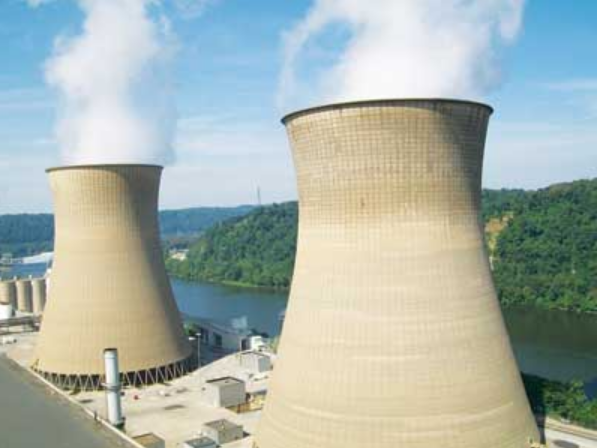
The research appears in the journal Nature Water, with UW Ph.D. student, Zitao Wu, as the lead author of the paper. Other contributors are from the National Energy Technology Laboratory (NETL).
Freshwater supply is being threatened due to drought, climate change and rapid socioeconomic growth, with water competition increasing between the electric power sector and other sectors. Additionally, the decarbonization of fossil-fired power plants by carbon capture and storage (CCS) would significantly increase water consumption and exacerbate water competition, driving plant operators to explore alternative water sources.
“Treatment of brackish groundwater for thermoelectric generation cooling can help alleviate potential competition for freshwater resources among various sectors in water-stressed regions,” wrote the research team, led by Haibo Zhai, UW’s Roy and Caryl Cline Distinguished Chair in the College of Engineering and Physical Sciences.
Researchers noted removing excess dissolved salts and minerals from brackish water can be energy intensive and produce concentrated brines requiring disposal. A method called zero liquid discharge minimizes environmental impacts of desalination but is particularly costly.
They also estimated how much fresh water would be saved as a result of treating brackish water for plant cooling. Researchers also evaluated the cost-effectiveness of brackish water treatment retrofits and the impact on the net generating capacity of power plants.
They concluded that retrofitting power plants to treat brackish groundwater could nearly eliminate the use of fresh water but increase the cost of electricity generation by 8 per cent to 10 per cent.
“Our study reveals trade-offs in freshwater savings, cost and generating capacity shortfalls from desalination deployment,” Wu said.
The researchers called for further development of technologies to treat brackish water, along with exploration of using other nontraditional water sources for cooling of power plants. Those include treated municipal wastewater, as well as water produced from oil and gas extraction and carbon dioxide storage reservoirs.
This is the second paper of a multiyear project funded by the US Department of Energy (DOE). The first paper, previously published in the journal Applied Energy, examined the possibility of switching from water cooling towers to dry cooling systems at fossil fuel-fired plants.